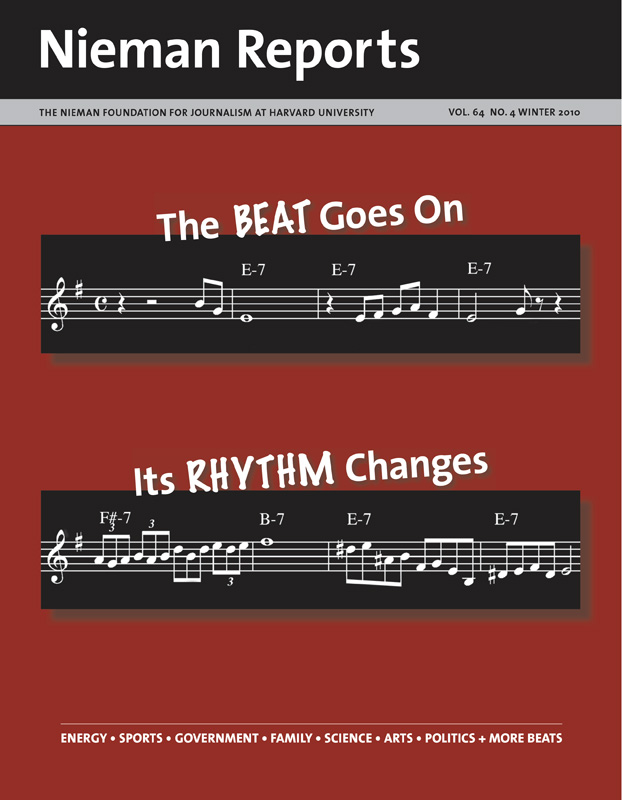
Bell’s public officials went from having no coverage to an onslaught of media attention after the Los Angeles Times uncovered officials’ outsized pay. Here, reporters interview the only City Council member who received the standard salary. Photo by Chris Pizzello/The Associated Press.
This past summer two reporters from the Los Angeles Times broke a major story in a place that doesn’t usually figure into its coverage—or any other new organization’s. Imminent bankruptcy had forced the city of Maywood to lay off all of its employees and outsource its management to the neighboring city of Bell, an unprecedented move even in the cash-strapped state of California.
Facing budget cuts of its own, the Times was no longer covering smaller cities on a day-to-day basis but when reporters Jeff Gottlieb and Ruben Vives looked into the new arrangement, they found that things in Bell weren’t exactly financially sound.
The city manager of Bell (pop. 40,000), was making close to $800,000 a year while the police chief was paid more than $400,000 and four of the city’s part-time council members made close to $100,000 each, largely for serving on boards and committees that never met. Salaries that high would raise concern in any big city (as the Times noted, Bell’s manager was making more than twice what the chief executive of Los Angeles County makes), but in Bell, nobody was keeping watch. Only after the Times started investigating was this compensation scandal brought to light, prompting enough community outrage to force the city officials’ resignations.
As journalist Conor Friedersdorf wrote in a column on Forbes.com titled “Why Every City Needs a Beat Reporter,” “had its [Bell’s] residents banded together five years ago to hire a top-notch beat reporter, even paying him the handsome salary of $200,000 per year, the return on their value would’ve been immense.” In fact, it would not have taken a top-notch beat reporter to notice that something was amiss—under California law, government salaries are a matter of public record. “All anyone had to do was look at the paperwork on file at city hall—and any halfway decent beat reporter assigned to the city would’ve known to do exactly that as a matter of course,” he concluded.
The only other coverage of the city comes from a chain of community newspapers, which covers Bell and 14 other communities with a single reporter who hasn’t been to a Bell City Council meeting in 17 years, according to Times media critic James Rainey.
As newsrooms slash their budgets and limit their coverage, courthouses and city halls across the country left uncovered may fall prey to such unscrupulous behavior by officials. What happened in Bell is a reminder that watchdog reporters, like their canine counterparts, are better to have and not need than to need and not have.



